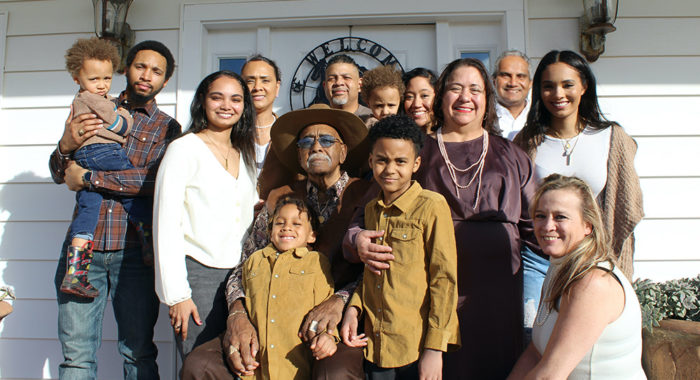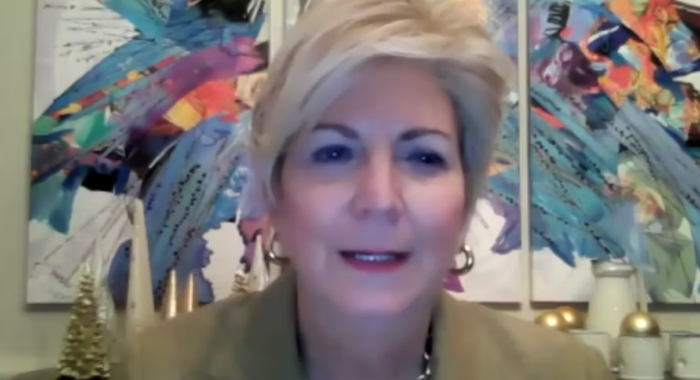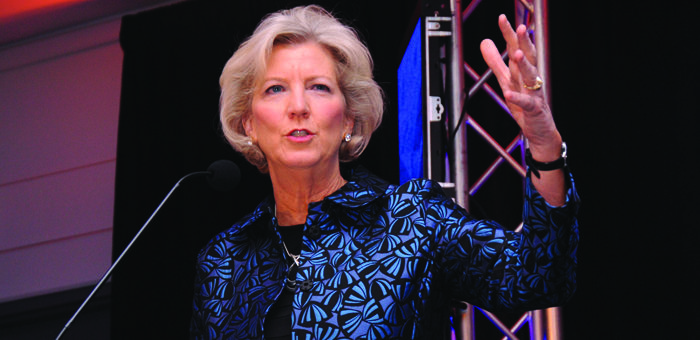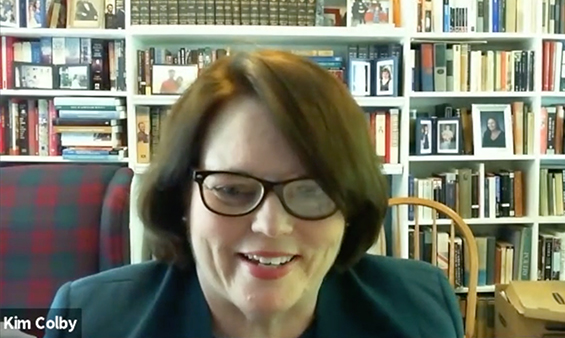Shirley Hoogstra has been the president of the Council for Christian Colleges and University since September 2014, after serving 15 years as vice president for student life at Calvin College in Grand Rapids, Michigan. She returned Calvin (her alma mater) after practicing law for more than a decade as a partner at a firm in Connecticut. While practicing law, she was involved at Calvin College, participating in endowments and serving on the college’s Board of Trustees. Hoogstra received her J.D. from the University of Connecticut School of Law.

Christian colleges and universities face many challenges today. Some experience legal battles as they seek to maintain their faith identity in an increasingly secular society. Others must address the competing interests of various constituencies, such as students, donors, faculty and alumni. They all need to make exemplary education affordable and accessible.
In Today’s Conversation podcast, Leith Anderson talks with Shirley Hoogstra about the challenges and opportunities of Christian colleges, including:
- Recent case studies challenging the religious freedom of Christian colleges, particularly as it relates to biblical marriage and LGBT rights;
- Innovative approaches providing more opportunities for Christian college students;
- Advice for college presidents in their unique place of ministry; and
- Reasons to be encouraged about the future of Christian higher education.
Read a Portion of the Transcript
Leith: Peter Drucker once said that among the most difficult jobs in the United States, being the president of a university is one of the top three. And he explained that that’s because there are multiple constituencies. So there are donors and students and faculty and alumni. There’s the community and accreditation, there’s finance, there’s so many different constituencies for a college or university. You probably know Christian college presidents more and better than anybody and must give them advice. So, what advice do you give to these college and university presidents in negotiating all of these competing interests in their constituencies?
Shirley: Well first of all, they have to really be clear about the mission of their institution. They have to know that assignment. And then they have to choose to say, “I won’t look over my shoulder at what other places are doing. I’m going to be excellent in the assignment that I have.”
I would say: Don’t take things personally. There are going to people who agree with you and don’t agree with you. Most presidents have learned to be both gracious and have a thick skin. And I think that’s one of the best qualities that I have found when I deal with the 180 presidents in my association.
To a person, they care about their students, their faculty, their alumni, the donors, their constituents. They are self-sacrificing, and they are unflaggingly gracious towards others. They are welcoming, and they are thinkers who really feel the large assignment that keeps expanding, Leith.
You know 10 years ago they didn’t have to be government advocates. Ten years ago they didn’t have to have quite the fundraising expertise. Ten years ago they didn’t have to have this base of business relationships and medical relationships and legal relationships.
The job is more and more complex, and people on social media today — you know — they can be quite quick to critique and criticize. And I would say that our presidents — and the advice that I give to them and see that they are incorporating is that — “We serve an audience of one and that is does God say, ‘Well done, good and faithful servant?’” while they shepherd and hold this wonderful fiduciary duty towards their institution.
Share the Love
If you enjoyed the program, please rate it on iTunes and write a brief review. That will help get the word out and raise the visibility of the show.



 View All Podcasts
View All Podcasts 

























